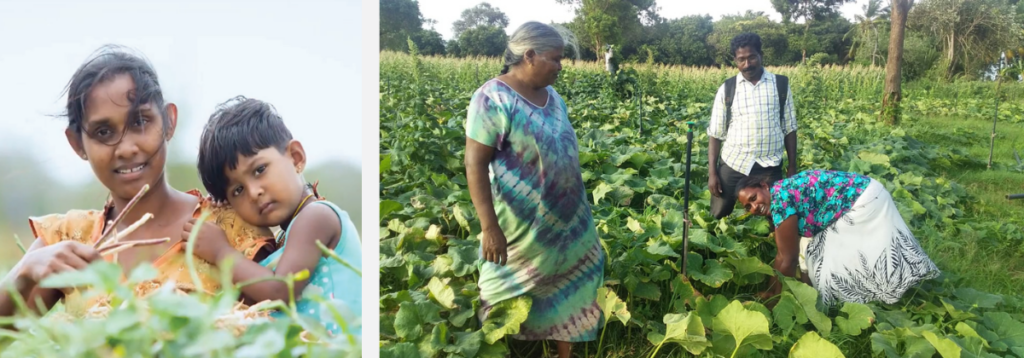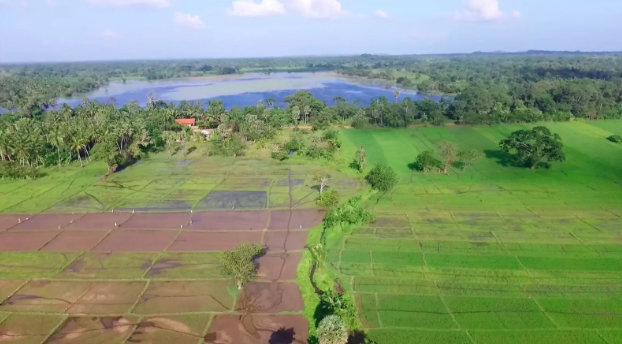By: Logan Nagel, Associate Board Member, Green Empowerment
Our roots might be in the Pacific Northwest, but Green Empowerment’s history of involvement in international development stretches around the globe. In fact, our founder Michael Royce was the son of Henry Reuss, a Wisconsin congressman who initially proposed the idea that would eventually mature into the Peace Corps. Today, we keep the spirit alive with multiple team members coming from Peace Corps backgrounds, including our current Executive Director, Andrea Johnson.
The Peace Corps thread resurfaced recently through a new donor, the Paul Liebman Family Foundation. Paul Liebman was a Peace Corps volunteer in his youth, serving and falling in love with the culture and country of Sri Lanka. When he passed away, the family looked to support a project that honored Liebman’s sustained involvement in Sri Lanka. They connected with Green Empowerment because they knew we do work in the region. We in turn asked our long-term partner in Sri Lanka what their current priorities are.
Janathakshan, a Sri Lankan Green Empowerment partner since 2010, shared that agricultural communities in the country’s large interior Dry Zone are in urgent need of water, food and alternative sources of income. The cornerstone of the five-year strategy we helped Janathakshan develop? Cascade water systems.
The Context
Sri Lankan smallholder farmers have relied on cascade water systems for thousands of years. These rely on a series of small holding areas connecting to larger reservoirs, and unlike western water systems, cascade water systems benefit local biodiversity. They also provide local water stores, which can be tapped by communities in times of need, boosting climate resilience.
Over time and exacerbated by climate change, these once-efficient water management systems have deteriorated, leaving farmers vulnerable to water scarcity and erratic rainfall. This decline not only affects the local communities but also poses a significant threat to national food security, given the Dry Zone’s important role in rice production.
To address this issue, with generous multi-year funding from the Paul Liebman Family Foundation, Green Empowerment is supporting Janathakshan as it seeks to benefit 5,000 community members by improving water access, promoting sustainable agriculture practices, and providing livelihood training.

The Plan
With Janathakshan leading the project’s actual implementation, Green Empowerment is focused on guiding the technical aspects, troubleshooting, and equipping community members with skills to maintain and repair the water systems as needs arise. The project is structured in three components:
- Water & Livelihoods: Including restoration of the cascade systems and building capacity toward sustainable agriculture, women-led livelihood opportunities working with area agricultural products, and localized weather forecasts to aid in farming decisions.
- Pilot Program Services: Green Empowerment and Janathakshan will dig deeper into the community’s needs, exploring renewable energy and other solutions for farming and food processing.
- Knowledge Sharing: We will document and disseminate the project’s methodologies and findings, making it easier for other groups such as our partner organizations operating in Latin America and Southeast Asia to follow in our footsteps.
Why Small Tank Cascade Systems?
Historically, cascade systems were among the world’s most efficient water management mechanisms. They played a pivotal role in supporting Sri Lanka’s rice paddy cultivation, earning the country its title as the “Granary of the East.” Surrounded by vegetation to prevent water runoff, these systems also nurture biodiversity, providing habitats for a diverse range of wildlife.

However, with the advent of Western and industrial agricultural practices, the cascade systems faced neglect. Many of these tanks deteriorated, were no longer maintained, or were abandoned. Now, facing ever more intermittent rain as well as a heightened risk of severe weather events due to climate change, this decline not only disrupted agriculture but also posed threats to local ecosystems in the area.
Within their context, rehabilitating these systems gives a number of significant advantages over western irrigation methods:
- Sustainable Water Access: By restoring these systems, communities can secure a reliable water supply, crucial for overcoming dry periods and ensuring consistent agricultural productivity.
- Climate Resilience: The cascade systems, with their natural design, can mitigate the impacts of climate change, helping communities adapt to changing weather patterns and ensuring food security.
- Biodiversity Conservation: Reviving the tanks can restore habitats for various wildlife, promoting biodiversity in the region.
- Emphasizing Local Knowledge and Capabilities: By leveraging local knowledge that has worked for centuries, and helping train area residents in how these systems work in the 21st century, we’re baking resilience into the project from day one. Instead of relying on outside advisors, the communities we’re working with will be able to operate and maintain their own water management systems.

Leveraging Local Leadership
This might be our first time working with cascade water systems but it isn’t our first time leveraging local perspectives and operation by the community to generate better, more sustainable outcomes. Two recent projects include a micro-hydro energy generation system we helped install in Malaysia and an ice-making facility in Peru. Janathkshan has been an indispensable project lead, recognizing the needs of their community and allowing us to act as advisors and enablers of sustainable outcomes. Janathakshan was also pivotal in navigating the local political landscape.
“They [Janathakshan] had already established a field office in the target locations, and they’re starting to consult and coordinate with local stakeholders. It’s something that’s necessary…to work with governments and make sure that they’re on board with what you’re doing.”
Geo Corneby, Southeast Asia Program Director for Green Empowerment
By the end of the project, our cascade rehabilitation project will have rejuvenated three entire cascade water systems, provided better water access, food security, and livelihoods to 2,500 individuals, and boosted the climate resilience of a further 2,500 Sri Lankan farm families.
We are confident that Henry Reuss and Paul Liebman would be proud of the work we’re supporting in Sri Lanka. For us, it’s another testimonial to the power of building partnerships, utilizing local knowledge, and emphasizing sustainable system approaches instead of development bandaids and shortcuts.

Logan Nagel is an associate board member with Green Empowerment. He is a journalist with expertise in commercial real estate and property technology and a background in marketing and project management.
